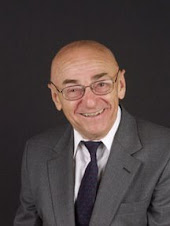This month, don't worry, be happy. Or, at least, let's consider the ups and downs of "Happiness". The super ace Phil Oliver, Ph.D., professor of psychology at Middle Tennessee State University will tell us what researchers have found out about happiness.
My subject:
Happiness: A Free Person's Worship, alluding both to Bertrand Russell's 1903 "
A Free Man's Worship" and his 1930
Conquest of Happiness. The former reflects Russell's early Platonic phase, but both are concerned with how to achieve godless happiness in a finite and indifferent cosmos.
One of the students in my
Atheism & Philosophy course reported on
his SA visit in 2014, a "great experience" with "incredibly friendly" people.
Julian Baggini did a similar thing when he
spoke to an Anglican Church in England, beginning by "repeating that tired cliché of our times: 'I’m not religious, but I am spiritual.'"
I told the congregation what I thought people meant by this. They mean that they reject the creeds and institutions of traditional religions, organised or not. They can’t accept that any religion has a claim to divine truth when history suggests that every religion is the product of the particular time and place in which it emerged. Religions are too obviously human institutions to own universal truth, and sacred texts too obviously the product of the human hand to claim divine authorship.
Nor do the best-known teachings of the main religions make sense to them. They don’t believe in the stories of ancient miracles, of angels dictating God’s word, of a saviour rising from the dead. Even more unbelievable is the need to perform certain rituals in order to attain salvation, or at least to have a relationship with God.
But rejecting all this does not mean they are willing to embrace the full-blown naturalism of atheism. They cannot believe there is nothing more than the physical realm. They believe that there is more to life than the material, and that something they give the label “spiritual”.
The Sunday Assembly people seem a bit further down the secular road than that, judging by their stated affirmation that "we are born from nothing and go to nothing. Let’s enjoy it together." They claim no doctrine and no sacred texts, but endeavor to "make use of wisdom from all sources." They worship no deity, having found something "
bigger than Phil" - nature, and the humanity nature has spawned.
"...the need for God never vanishes. Mel Brooks’s 2000 Year Old Man, asked to explain the origin of God, admits that early humans first adored “a guy in our village named Phil, and for a time we worshipped him.” Phil “was big, and mean, and he could break you in two with his bare hands!” One day, a thunderstorm came up, and a lightning bolt hit Phil. “We gathered around and saw that he was dead. Then we said to one another, ‘There’s something bigger than Phil!’ ” The basic urge to recognize something bigger than Phil still gives theistic theories an audience, even as their explanations of the lightning-maker turn ever gappier and gassier..." Adam Gopnik: When Did Faith Start to Fade? : The New Yorker
"We don’t do supernatural but we also won’t tell you you’re wrong if you do." They "won’t tell you how to live, but will try to help you do it as well as you can."
Sounds like my tribe.




 Charles Darwin (
Charles Darwin (










